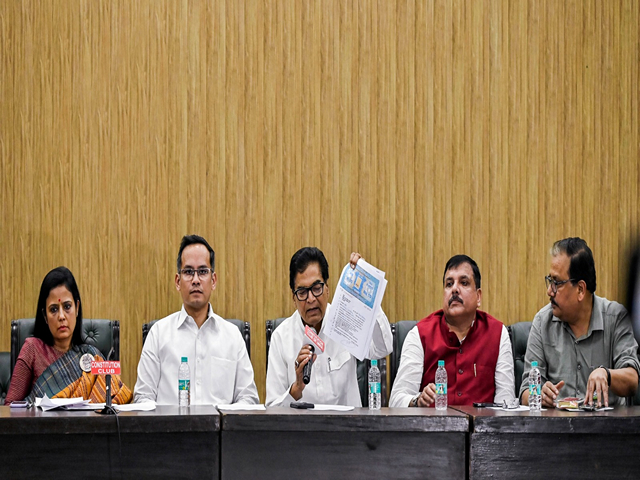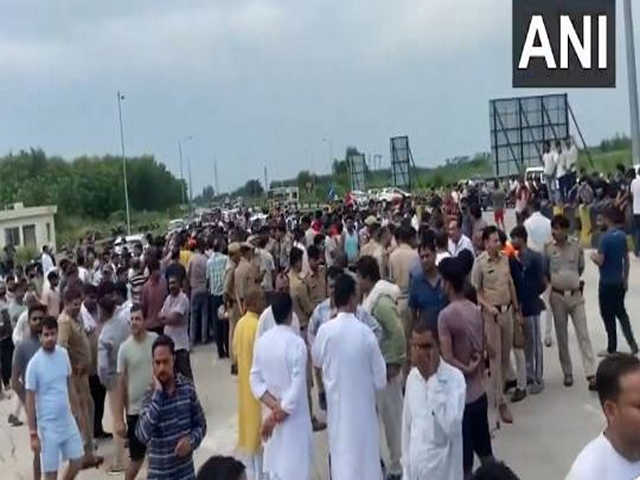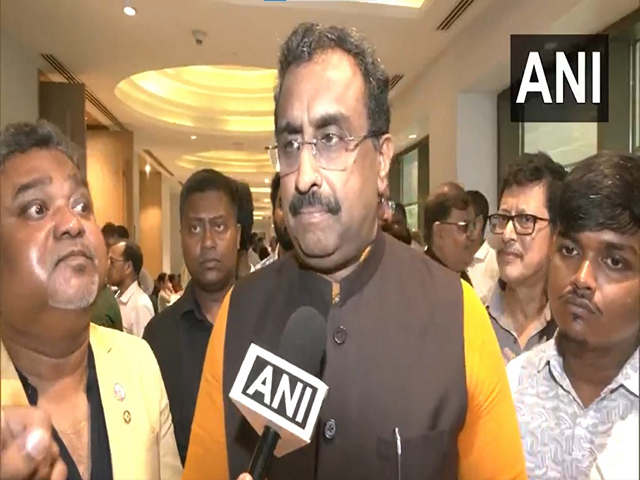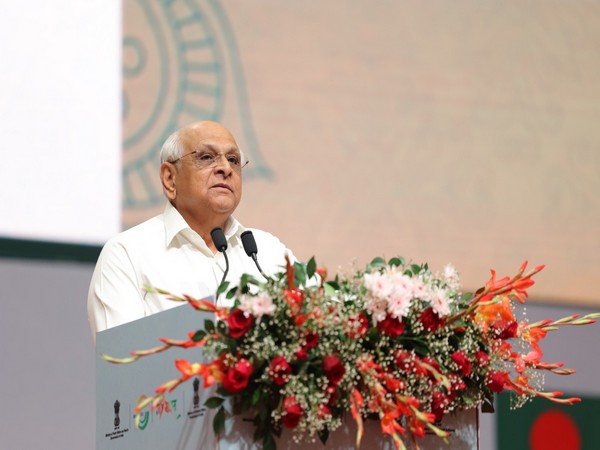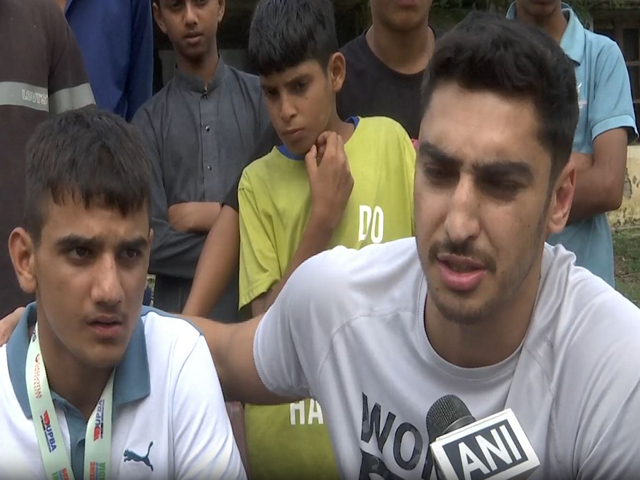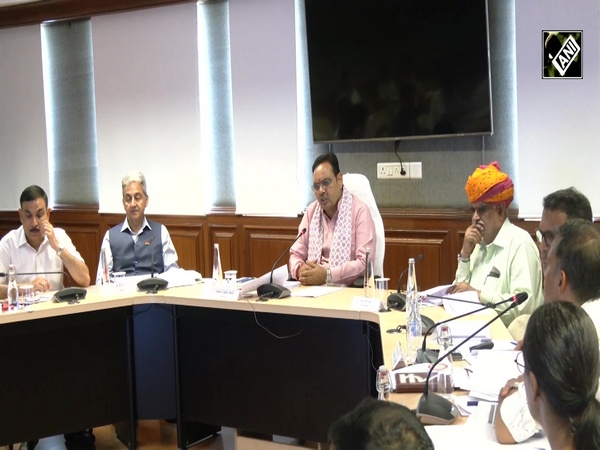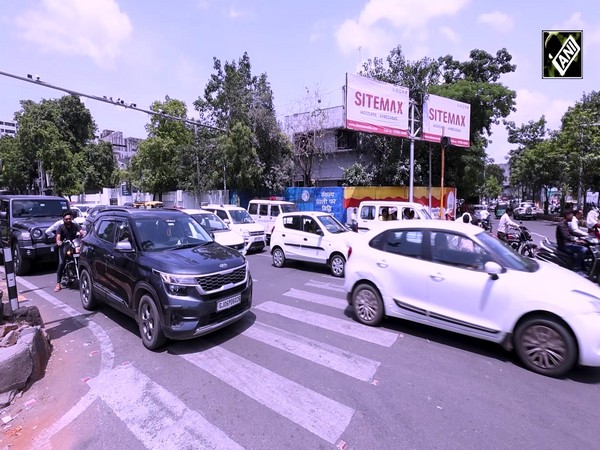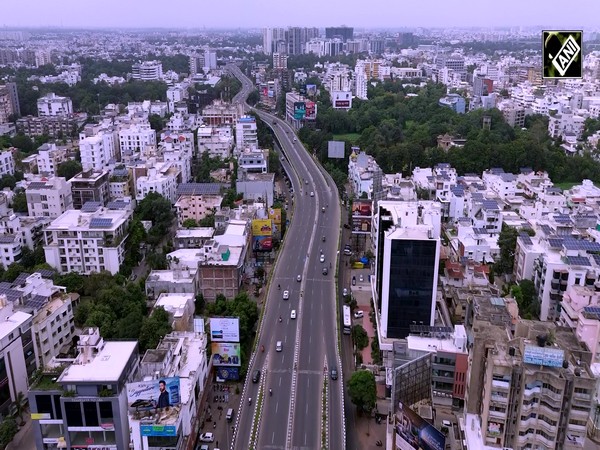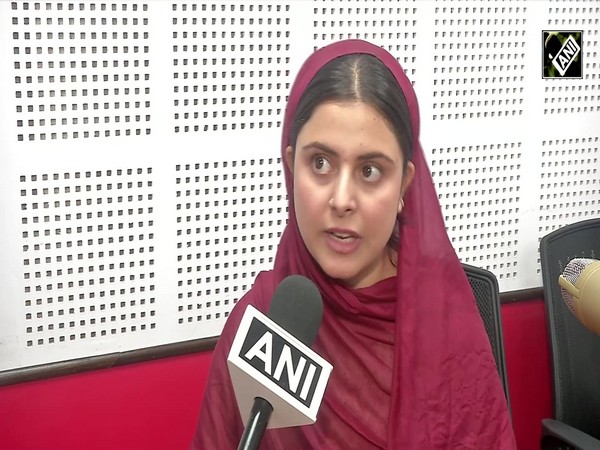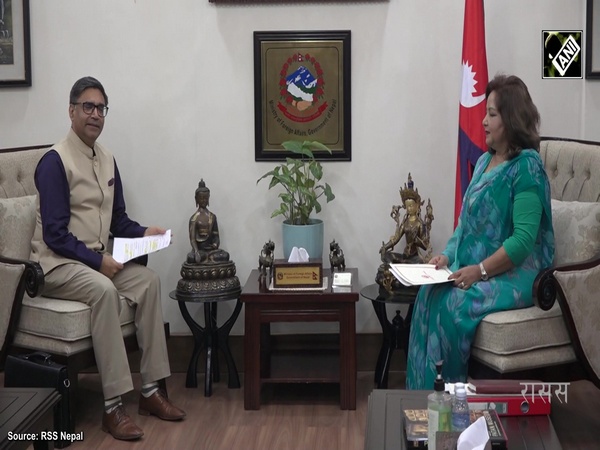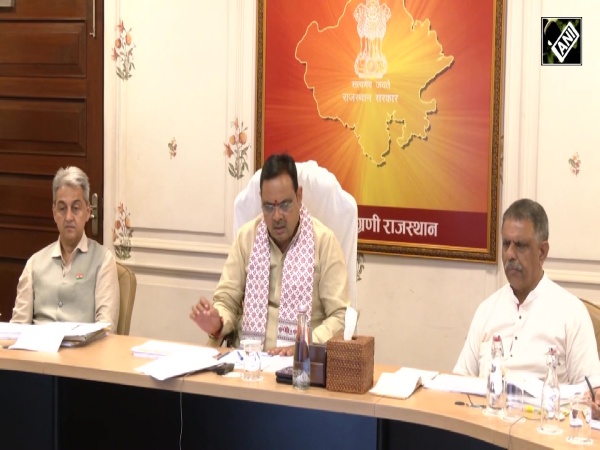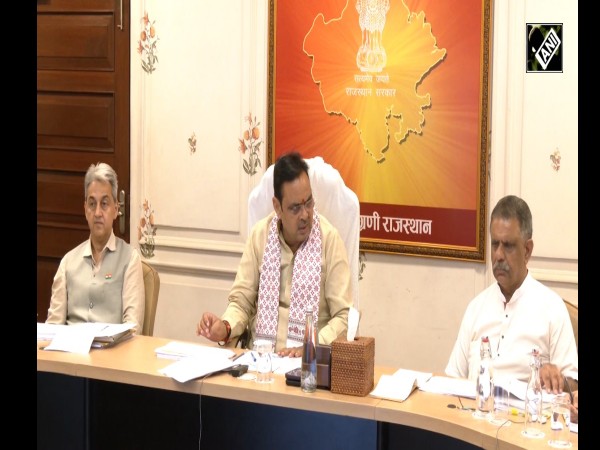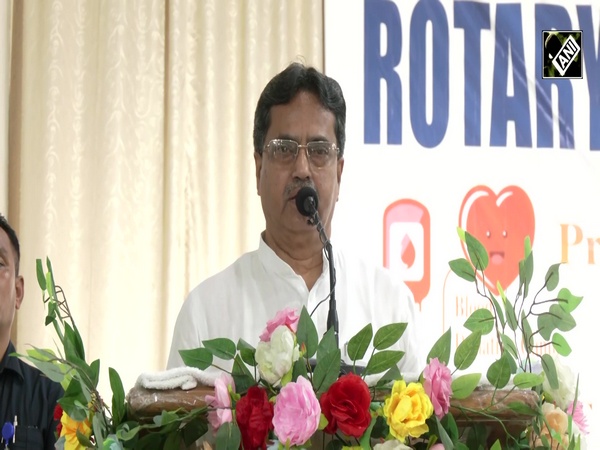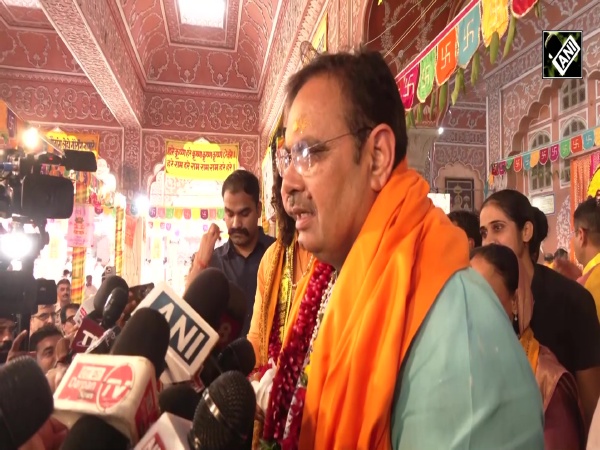Wellness of people becomes core of India's transformed healthcare system: Union Minister Subhas Sarkar
Dec 23, 2022

New Delhi [India], December 23 : Highlighting the efforts of the Center in transforming the health sector in the country, Union Minister of State for Education, Subhash Sarkar
asserted on Friday that the Modi government has brought about a paradigm shift in the approach of the treatment of disease to the wellness of people at the core.
Addressing the mediapersons here, Sarkar spoke about various government initiatives taken to transform the health sector.
The Union Minister said, "A proactive approach has been adopted by the government and a paradigm shift took place in the healthcare sector. A new approach to health and wellness became the core of health sector governance rather than just treating sick persons."
Sarkar further said that the Ministry of Health and Family Welfare through various Centrally Sponsored Schemes and Central Sector Schemes supplements the efforts of the States/UTs in the healthcare sector.
He said the maternal mortality ratio (MMR) in 2014 was 130 per lakh and in 2020 it was 97 per lakh. He also mentioned the change in infant mortality ratio (IMR) which was 39 in 2014 and 28 in 2022 per 1000 live births respectively.
He also said that the neo-natal mortality ratio (NMR) and under-5 mortality ratio (U5MR) which was 26 in 2014 and 20 in 2020 per 1000 live births and 45 in 2014 and 32 in 2020 respectively.
The Minister highlighted some of the major schemes, such as the National Health Mission (NHM), Ayushman Bharat - Pradhan Mantri Jan Arogya Yojana (AB-PMJAY), Pradhan Mantri Ayushman Bharat Health Infrastructure Mission (PM-ABHIM), Establishment of New Medical Colleges, National Program of Prevention and Control of Cancer, Diabetes, CVDs, and Stroke (NPCDCS), National Vector Borne Disease Control Programme (NVBDCP), Pradhan Mantri Swasthya Suraksha Yojana (PMSSY), etc.
Sarkar added that the government is ensuring holistic healthcare through Ayushman Bharat Yojana. He said that the yojana stands on the four pillars, which are Ayushman Bharat Health and Wellness Centre (AB-HWC), Ayushman Bharat- Pradhan Mantri Jan Arogya Yojana (AB-PMJAY), Ayushman Bharat Digital Mission (ABDM) and Ayushman Bharat Health Infrastructure Mission (PM-ABHIM).
He added that the total released fund from 2006-07 to 2013-14 was Rs 1,59,832 crore and then from 2014-15 onwards, the total released fund from 2013-14 to 2021-22 was Rs 4,27,501 crore.
He added that in 2012-13, six AIIMS started their academic sessions. But 2014 onwards, 16 major projects for new AIIMS in various States of the country i.e. Uttar Pradesh, Maharashtra, Andhra Pradesh, West Bengal, Punjab, Himachal Pradesh, Assam, Jharkhand, Gujarat, Telangana, Jammu and Kashmir, Bihar, Haryana and Tamil Nadu are running. "In this way, the Prime Minister Narendra Modi-led government has made Indian healthcare future-ready," he said.
He also said that, as on November 30, 2022, the Cabinet approved outlay for 16 new AIIMS with a fund of Rs 20,944 crores. A fund of Rs 10,595 crore has been released.
While talking about COVID prevention, he mentioned that as on December 20, 102.55 crore first doses, 95.12 core second doses and 22.34 crore precaution doses, which is a total of 220.01 crore vaccination have been given.
He said that under the Vaccine Maitri Programme, India supplied COVID-19-related medical and other assistance to over 150 countries since the beginning of the COVID-19 pandemic at a very affordable price.
He said that for fighting the pandemic the government has developed 3,388 testing laboratories.
Refering to Mission Indradhanush, the Minister said that the mission was announced on December 25, 2014, to increase immunisation rates against deadly diseases that can otherwise be prevented with vaccinations all across the country.
He said that Mission Indradhanush has immensely contributed to filling the gaps and making lasting gains toward universal immunisation. He also added that the Ayushman Bharat Pradhan Mantri Jan Arogya Yojana (AB-PMJAY), is the world's largest health assurance scheme.
The government, he said has provided health coverage up to Rs 5 Lakh per family per year to around 10.74 crore poor and vulnerable families. The total number of Ayushman Cards issued till date is 21.24 crore and the total number of Hospitals Admissions is 4.22 crore.
Sarkar emphasized that the government is also taking care of the citizen's mental health. He said 'Manodarpan' initiative to provide psychosocial support to students, teachers and families for mental health and emotional well-being was taken during the COVID pandemic.
The Minister said the International Day of Yoga has been celebrated across the world annually on June 21 since 2015, following its inception in the United Nations General Assembly in 2014.
He also said that the worldwide acceptance of Yoga is a matter of pride for our country, as Yoga is an integral part of our nation's cultural and spiritual heritage.
"Yoga has numerous benefits, it is an exercise that we perform by balancing the elements of our bodies. To promote Indian traditional healthcare systems and research, with a vision of reviving the profound knowledge of our ancient systems of medicine and ensuring the optimal development and propagation, a separate and dedicated Ministry of Ayush has been established in the year 2014 under the visionary leadership of Prime Minister Narendra Modi," he said. For this, he added that the government allocated a budget of approximately Rs 3,000 crores in 2021-22.
